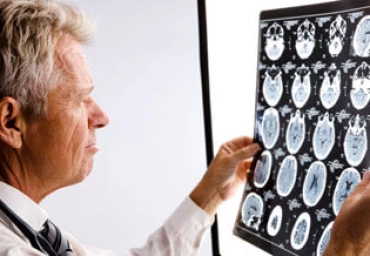Why Did My Child Have A Stroke During Surgery?

It is a sad event when a child undergoing surgery has a stroke. A stroke may cause permanent disability and potentially death. The first thing that runs through the mind of a parent, guardian, or family member, is "How could this happen?" There is a natural tendency for those facing this crisis to try to assign blame.
Illnesses that Cause Stroke
The National Institute of Neurological Disorders and Stroke reports that heart disease, which is either acquired or congenital (inherited from parents) is the most frequent cause of stroke in children.
There are two types of stroke, which are:
- Hemorrhagic - This happens when blood vessels in the brain rupture.
- Ischemic - A blood clot that blocks normal blood flow to the brain causes this type of stroke.
Ischemic stroke is more common. The stroke association says that an ischemic stroke may occur when a blood clot from the heart arrives in the brain. Children with sickle cell anemia have a risk of a stroke because the blood does not bring enough oxygen to the brain. About one-tenth of children with this sickle cell disease have a stroke, which may occur more than once. Trauma, such as a neck injury, may cause a stroke. In about one-third of the cases of stroke in children, no cause is evident.
Medical Malpractice
Certainly in some cases, medical malpractice causes a child to have a stroke.
Legal cases of medical malpractice come from the following conditions that potentially support a claim of negligence:
Failure to Diagnose
When a child has a stroke during surgery, the symptoms of stroke normally become apparent when the child is in recovery from the surgery. When failure to diagnose occurs, it may be medical malpractice.
Timeliness of Treatment
When a child suffers hypoxia (low oxygen) or anoxia (absence of oxygen) during surgery, permanent damage to the brain may result. One factor that may cause this is the use of incorrect procedures and/or incorrect dosage for anesthesia. Damage to the brain happens quickly, sometimes in a matter of minutes. Immediate corrective measures and proper treatment are necessary.
If the child shows signs of stroke, a specialist (called a “neurologist”) should see the child immediately. Brain-imaging tests are run to determine brain damage and therapy administered quickly to lessen further damage.
Improper Treatment
There are recognized standards of care for treatment of stroke in children that need following, otherwise, this may be a case of medical malpractice.
Hospital Liability
A hospital has the responsibility to have a program for prompt and accurate diagnosis of stroke that occurs in children during surgery. Additionally, it must offer proper treatment. If such a program does not exist, the hospital may be liable.
Conclusion
When a child has a stroke during surgery and medical malpractice is a possible cause, please contact one of our experienced stroke injury lawyers for a free consultation.
Disclaimer: Ross Feller Casey, LLP provides legal advice only after an attorney-client relationship is formed. Our website is an introduction to the firm and does not create a relationship between our attorneys and clients. An attorney-client relationship is formed only after a written agreement is signed by the client and the firm. Because every case is unique, the description of awards and summary of cases successfully handled are not intended to imply or guarantee that same success in other cases. Ross Feller Casey, LLP represents catastrophically injured persons and their families in injury and wrongful death cases, providing legal representation in Pennsylvania and New Jersey.





